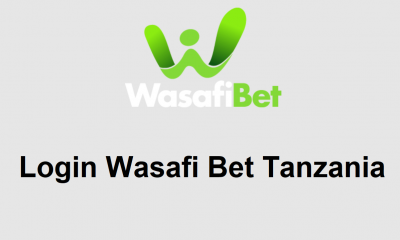Sports
Is Sports Betting Legal in Nigeria?

Sports betting, just like all gambling activities, can be quite sensitive to regulation. If left uncontrolled, the losses could be massive- from bookies losing their stakes and winnings to serious gambling addiction. We take a look at the legality of sports betting in Nigeria, the law regarding the same, and the gaps that need to be filled.
Legislations on sports betting in Nigeria
Nigeria, one of the biggest economies in Africa and with the highest population boasts of a robust betting following. There are major legislations that have made sports betting legal in Nigeria. The National Lottery Act of 2005 is the most recent legislation that was specifically passed to control and regulate the betting affairs in Nigeria.
The National Lottery Act of 2005 provides for The National Lottery Regulatory Commission (NLRC) which is the body mandated to regulate all the gaming activities in the country. The commission is further mandated to protect the interest of all the players in the gambling industry, in addition to ensuring transparency within the sector.
It is important to note that the commission issues three types of licenses- Promotional Permit, Lottery licenses, and Sports Betting License (Online and Offline). The licenses cover betting, bingo, online casino, lotteries, fantasy sports, and online poker.
The Act prohibits gambling to persons below the age of 18, provides for the requirements that a company needs to have to be legally allowed to operate in Nigeria, and also the mandate of the Commission.
Other State Licenses legalizing Betting
Federal states like Lagos and Oyo are some of the States that have enacted specific pieces of legislation that cater to the specific needs of their particular population. Lagos has the Lagos State Lottery Law of 2004, which specifically regulates betting in Lagos.
There have been tremendous calls to regulate the industry even more. For instance, the Gaming Machines Act of 1977 barred the ownership, importation, and operation of gaming machines within Nigeria by the government. Later, the Criminal Code of 1990 went ahead to classify the legal and illegal gaming activities that would be allowed in the country.
Overview of current requirements for sports betting in Nigeria
We now look at a general overview of the gaming laws in Nigeria that make it a legal and safe activity.
To begin with, all companies or entities that wish to conduct betting business in Nigeria must be incorporated under the Corporate Affairs Commission (CAC). This leaves very little room for the dubious foreign companies that tend to set shop and disappear with the wagers of bookies.
Further, and even after acquiring a license, the individual states have a Lottery Board that tends to monitor and follow up on the licensed companies’ activities, which further makes gambling secure.
Betting companies have also been put on high alert, before being awarded the licenses. For instance, the application and processing fee to be considered for a license is a whooping N2 million which is non-refundable. The names and profiles of the directors and other key staff of the company are scrutinized deeply to establish the authenticity of the information provided.
The proposed activities of the bookmaker must also be pretty straight and acceptable to the regulator. The mode of distribution and the areas of interest must be precisely within the precincts and conventional channels. To cap it all, a detailed financial framework must be presented, with evidence of a 5-year projection as a going concern.
From the foregoing, it is clear that the bar for obtaining the operating license is a long and very thorough one- but in essence, it is meant to protect the bookies who wish to stake their money. Additionally, responsible betting is encouraged by the regulator who defines the legal age for gambling and closely monitors the content that is used to entice gamblers.
To conclude, sports betting is legal, and it has evolved, although there are loopholes that have been occasioned by the evolution of technology in recent days. It would be interesting to see how fast the regulator would continue to update the legal framework to match and catch up with the technological advances!
Sports
Which Football Competitions Drive the Highest Betting Payments in Nigeria?

Public payment-by-competition data is limited but that betting attention always centers on the top European football, specifically the EPL and UCL, plus the AFCON spikes in Nigeria.
First, payment volume by competition is not usually published publicly.
In reality, sportsbooks and payment processors do not generally get into the habit of publishing, in an auditable form, competition-by-competition payment breakdowns in a way that can be ranked, with precision, by the public. That is, any assertion that the EPL accounts for exactly X% of payments would be speculation unless supported by a published data set.
What can be said factually is which competitions tend to have the greatest attention from betting in Nigeria, which is based on repeated commentary by market players and patterns of observed consumption: football is clearly the most dominant, and the ones with the greatest amount of coverage, familiarity and weekly volume tend to drive the most consistent wagering behaviour.
In this article, we try to cast the highest payment volume in the form of a practical proxy: competitions that have the most definitive association with high and repeated betting activity.
Football’s weekly engine: never-ending leagues
The most significant driving force for betting-related payments is frequency. Weekly leagues introduce habitual behaviour: consistent deposits through multiple payment methods, steady in-play interest and constant opportunities for accumulators. These payment methods include bank transfers, cards, e-wallets, and others that can be deposited with PayPal. However, it is paramount that you check out the various payment and withdrawal methods offered by each bookmaker before placing your bets.
Within that structure, the English Premier League is widely considered to be the centre of gravity of Nigerian football attention. The reasons are simple and observable: It has good presence in the broadcaster world, it has massive fan bases of the key clubs, and has a full weekend slate which creates a steady rhythm to betting. When a competition is discussed every day, it is the go-to to bet after.
Behind it, other major European leagues (often featuring football’s top flight in Spain or Italy, football’s top flight, in betting parlay), benefit from the same frequency effect: weekly matches, recognisable clubs, widespread media coverage. Even bettors who profess their loyalty to one league, many still bet across the several European slates because the markets are never closed.
The prestige engine: European club competition
The UEFA Champions League is somewhat different to the domestic leagues. It doesn’t run every weekend, it comes in big nights. That structure tends to form spikes. Big clubs, knockout stakes, and trumped-up matchups draw attention. In payment terms this usually manifests itself in bursts: heavier deposits around big midweek ties, followed by a return to domestic routines at the weekend.
The Champions League also promotes different betting behaviour as well. Caused by their narratives; home legs, away goals history (now removed), second leg tactics, often punters go as much for “storey bets” as statistical bets. The result can be increased in-play engagement, and an increase in prop interest on marquee nights.
The national and continental engine: AFCON and major international tournaments
International tournaments like AFCON create a lot of betting activity in Nigeria especially when the national team is involved, or any time the international tournament is covered in the media. It comes in the shape of festival betting: concentrated, time-limited, emotionally charged.
Unlike the steady weekly flow of the EPL, AFCON has a tendency to be peaky during the window. Deposit can increase as people go back to wagering for the tournament, withdrawal can increase after decisive rounds. Even punters who play predominantly in club football often play AFCON when it is a special season for them.
Why these competitions dominate activity
There are three practical reasons as to why these competitions rise above the rest.
First is information. Bettors are more active when they believe that they know. High coverage competitions lead to endless analysis, highlights and discussion, which makes bettors feel confident, even with results remaining uncertain.
Second is market depth. The hottest competitions often have the smallest number of betting markets: match odds, totals, corners, cards, and a host of lines involving players. More markets equals more ways to bet, and can be translated into more transactions.
Third is social reinforcement. When everyone is watching the same leagues and tournaments, then betting forms part of the communal conversation. That social energy is what drives participation.
Bottom line
If by highest payment volume we talk about the competitions most consistently linked to heavy betting barrage, Nigeria’s centre of gravity is top European football, especially the EPL, followed by Champions League nights, other big European leagues and AFCON bursts during the tournament periods. It is nearly impossible to obtain exact payment volume data for each competition, so these precision rankings beyond these broad drivers can’t be found publicly, i.e., they’d have to be obtained internally by operators.
Sports
When Weather Hijacks Betting Odds

Weather conditions such as rain, wind, snow, or extreme heat could have an impact on the nature of both teams’ style of play, the way that goals might happen, and the way they are priced by bookmakers like 1xbet. Therefore, in recent years, the weather has been seen as one of the quickest, non-visible influences on wagering and gambling.
In the final hours leading up to a game, many individuals who wager money will either check the weather or look to confirm it has been altered before they access the relevant sites to wager on the game. The result is often that there has been a change in price immediately after the event has been confirmed. There is no requirement for a weather press conference to take place, as weather conditions will dictate when to make price adjustments.
Mobile alerts make weather-driven moves faster
Modern weather surprises spread instantly in modern betting with radar images on social media; waves of bets have begun flooding in before even national broadcasters are reporting current weather conditions. The overwhelming influence of weather bets is multiplied by players being able to place their wagers using mobile devices, as they are able to follow thick and thin markets by paying close attention to their mobile betting devices via 1xbet apk, to be ready and able to react immediately when weather-related news breaks. When rain starts to come down heavily or winds start to pick up, bettors adjust their expectations and place bets on things like totals, corners, and/or cards, respectively.
The fact that bets can be processed and accepted instantly when betting with mobile devices provides tremendous value and importance to how pre-match odds can be pushed up and down quickly, even though the movements in pre-match odds may have been created with only a small portion of the total stake being made by the total number of bettors.
Why wind and rain hit the goal markets first
Players from getting enough distance on long balls, which can cause problems with crossing the ball. Heavy rainfall can affect pass accuracy and create unexpected deflections due to players slipping or losing their footing. High temperatures can affect the pace of play and increase fatigue.
Bookmakers commonly will alter goal-related markets first when weather has a significant impact on shot quality and chance conversion. If the pitch is heavy, teams may be able to create attacking chances but not be able to finish them. Strong winds can disrupt how set pieces are taken, which makes them unpredictable.
Typical types of weather effects that drive odds adjustments include:
- strong wind reducing the accuracy of crosses and long shots;
- heavy rain reducing pace of play and increases slips, getting muddy pass accuracy and less cleanly taken.
- waterlogged playing surface, creating difficult passing;
- very high temperatures causing slower second halfs;
- and cold weather reduces stamina and touch.
These elements affect total point spread lines and sometimes also point spread lines in instances where either team is using more of a certain style of play.
How odds shifts look when the forecast changes
Weather-based movement often follows a recognizable sequence: forecast update, market pause, then adjustment. It can happen in minutes.
| Weather shift before kickoff | What bettors expect | Where odds usually move |
| Wind picks up sharply | Fewer clean chances | Under goals shortens |
| Heavy rain starts | Slower play, more mistakes | Totals and corners adjust |
| Heat wave confirmed | Lower tempo late | Second-half totals drift |
| Sudden storm warning | Match may stop or delay | Markets suspend briefly |
| Pitch declared heavy | Physical game, fewer patterns | Cards and unders tighten |
The public reacts late, the market reacts early
Oddsmakers adjust the line in their favor before the average bettor has even thought to make a wager on a particular matchup. Many recreational players are betting based on team name and recency—weather is an afterthought, if that at all.
Trained bettors will typically make their move much earlier in the process by being tuned into the weather forecast and any stadium information. Once they get their money in early, the oddsmakers adjust the odds and the recreational players will wager at a different price.
That’s why the weather has such a huge ability to create a “pre-match surprise”; it can quickly change assumptions and betting markets are based on assumptions.
Smart ways to handle weather-driven chaos
The weather offers chance and also risk. Quick checklists come in handy when making smart choices:
- Check the current market movement before betting on a new weather event.
- Don’t accept forecast headlines generally; look back for context.
- Assess style of play: crossing the touchline, tempo, and physical size.
- Don’t rely solely on morning weather updates; check late changes to match timing as well.
- Be cautious when betting on the live market after the weather created chaos.
The forecast does not match, but the forecast could create a change to the match, which can createa change to the odds.
Weather is not background noise anymore
Today’s weather plays a major factor in today’s gaming and gambling markets. Weather conditions can completely alter game pace and a gambler’s approach to betting. Many times, sportsbooks have to adjust pricing for an entire section of the board at the last minute due to these changing weather patterns.
The important piece is understanding the reasons behind odds movement in order to take advantage of them rather than just noticing they have moved. As weather conditions change at the end of a sporting event, the betting market is reacting to uncertainty, and when uncertainty increases, the odds do not typically remain as displayed on the betting screens.
Sports
Golf Training, Tournament Hold March 8 in Warri North

By Henry Ovie
A one-day golf training and tournament specifically for girls has been fixed for Sunday, March 8, 2026, in Koko, in the Warri North of Delta State.
A statement from the organisers of the event, Canaan Land Golf Training and Tournament, disclosed that about 50 girls would be accommodated.
Tagged The Biggest Giving Day of the Year, the programme, according to the chief executive of Akogate Group, Mr Felix Aganbi, will entrench the attitude of excellence and develop young, highly quality golfers in terms of their golf quality and personal character.
He urged parents in Nigeria and abroad to allow their daughters to attend the event, saying it will build their confidence.
“The golf training and tournament will introduce girls to golf in a social and engaging environment. It will also help them build confidence, learn vital skills, and connect with others in a friendly community,” he was quoted as saying in the statement on Thursday.
The programme, which will take place at the Canaanland Golf and Country Club, celebrates the social, economic, cultural and political accomplishments of women as well as raises awareness for accelerated gender parity
“Open to girls in years 8-16, the training and tournament provide high-quality coaching to assist the girl child in pursuing excellence in the sport of golf,” Mr Aganbi noted, listing technical skill development, comprehensive fitness and mental conditioning as key features of the training.
“The girls will learn the basics of golf grip, stance, posture alignment, golf rules and etiquette. They will also be taken for an 18-hole playing lesson.
“The training and tournament will broaden opportunities for girls in Nigeria to realise their potential through education.
“Canaanland Country Club shall continue to encourage the education of females, improve the economic position of women and enhance their participation in matters relating to both the family and the society.
“It is also to join hands with the government in making our state a better place to live, campaign for the dismantling of systemic barriers and push for the power of reciprocity and abundant giving,” he disclosed.
Driven by Sir Alfred and Mrs Warami Temile, Mr Aganbi said the “club would continue to provide necessary assistance for the general development of people, especially those who live in the rural areas.”
In a related development, Mr Aganbi said the Oluremi Tinubu Golf Classic would take place on Saturday, April 25, 2026, at Canaanland Golf and Country Club, Koko.
“The tournament will attract international talent, create opportunities for emerging players and motivate the next generation to see what is possible in the women’s game,” he stated, adding that over 75 women are expected to participate.
The event is another important step in strengthening the women’s game in Nigeria, delivering significant benefits to the Niger Delta, drawing women, officials and fans to Warri North and boosting tourism and hospitality industries in Delta State.
-

 Feature/OPED6 years ago
Feature/OPED6 years agoDavos was Different this year
-
Travel/Tourism10 years ago
Lagos Seals Western Lodge Hotel In Ikorodu
-

 Showbiz3 years ago
Showbiz3 years agoEstranged Lover Releases Videos of Empress Njamah Bathing
-

 Banking8 years ago
Banking8 years agoSort Codes of GTBank Branches in Nigeria
-

 Economy3 years ago
Economy3 years agoSubsidy Removal: CNG at N130 Per Litre Cheaper Than Petrol—IPMAN
-

 Banking3 years ago
Banking3 years agoSort Codes of UBA Branches in Nigeria
-

 Banking3 years ago
Banking3 years agoFirst Bank Announces Planned Downtime
-

 Sports3 years ago
Sports3 years agoHighest Paid Nigerian Footballer – How Much Do Nigerian Footballers Earn
























